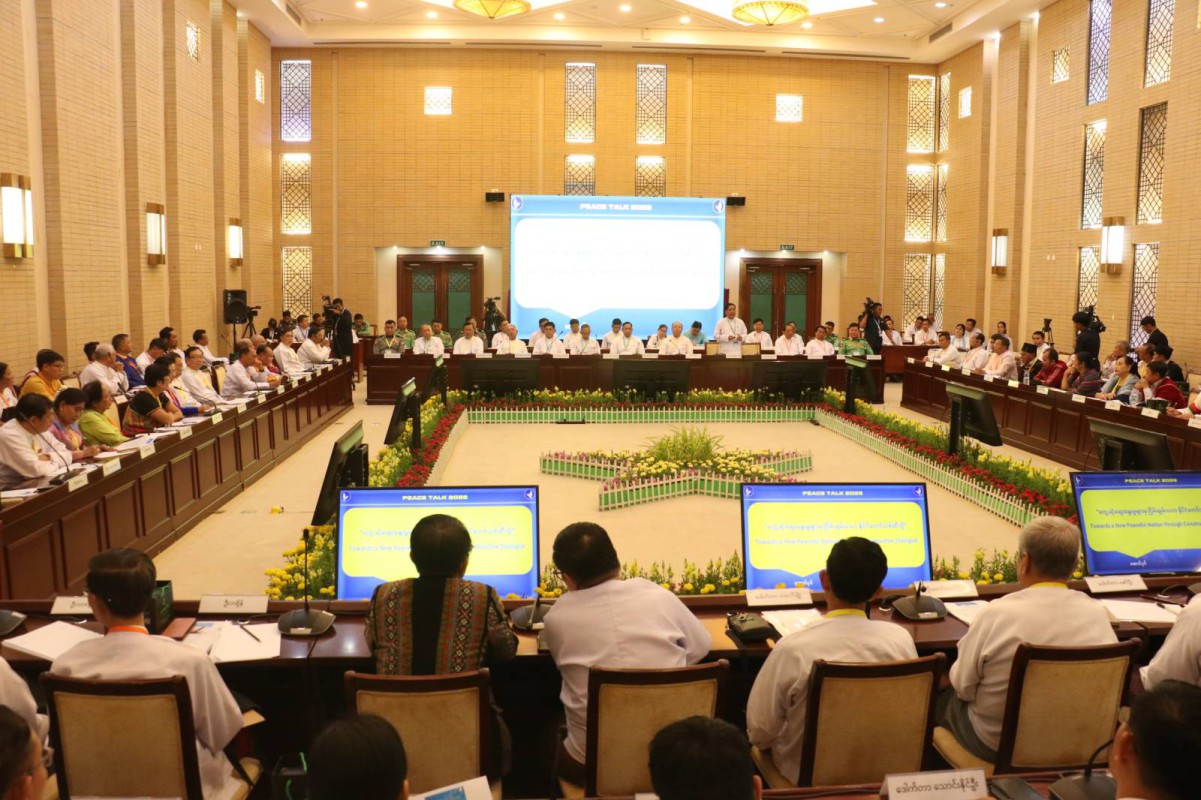Myanmar's role in a multipolar world: Challenges and Opportunities

951

Phyo Lin Aung (NP News) - March 30
We already understand that the world’s superpowers are adept at managing the shifting global order and international systems. However, as residents of medium-sized countries with limited interest in politics and political systems, we often overlook the significant influence and control that powerful nations have on the world.
Nevertheless, since the strategic decisions of these superpowers can profoundly affect medium countries, it is essential for us to constantly monitor the evolving world order and adopt strategies that allow us to adapt to it.
In this regard, Myanmar has taken steps to prepare for the emerging trends in the dynamic world order. Myanmar recently hosted the “Forum on Myanmar Beyond 2025: Challenges and Opportunities in a Multipolar World,” inviting international experts in geoeconomics and geopolitics, officials from political parties, and both local and foreign specialists.
According to Russian philosopher Alexander Dugin, who contributed a video discussion to the forum, multipolarity is not merely a continuation of the unipolar or bipolar systems. It is a new world order that involves multiple poles of power, surpassing the simplicity of the previous structures. Unlike the previous systems, multipolarity is not defined by rivalry among nation-states but by competition between civilization-states. Therefore, multipolarity arises from rivalries between rich civilization-states. These states, which extend beyond national boundaries, hold significant power. In the modern world, there are roughly four major civilization-states: the global West, China, Russia, and India. Among them, the three are technically countries, their rich cultures, rituals, identities and unique characteristics position them as more than just nation-states.
Thus, we are witnessing the emergence of a multipolar world, and the globalist agenda of a unipolar world is becoming a thing of the past. This shift provides an opportunity for all regions to regain and consolidate their sovereignty. Myanmar needs to seize this opportunity and act swiftly to strengthen its autonomy. With rising global dynamics, this is a critical moment for Myanmar to assert its position on the world stage and shape its future free from external pressures. By embracing this transition, Myanmar could create a more balanced and resilient political and economic environment.
The Chairman of the State Administration Council (SAC), Senior General Min Aung Hlaing, emphasized Myanmar’s geographical importance during his speech at the forum, noting that “Our country is a long country stretching from north to south. In addition to abundant freshwater rivers, the country has a diverse climate, forests, and a variety of natural resources, including fruit trees. These are our country's opportunities and advantages. Our country has a coastline of over 1,300 miles, and deep-sea ports and economic zones are operating. Our country is located in a geographically central location for maritime trade.”
Myanmar must leverage its unique characteristics and cultural identity to balance the interests of neighbouring powers, given its position between two powerful countries. As the SAC Chairman pointed out at the forum, “Our country is surrounded by five neighbouring countries and is located between the most populous nations, China and India. It sits on the communication route between South Asia and Southeast Asia, making it a pivot area. The combined population of Myanmar’s neighbouring countries is nearly four billion, or about 50 percent of the world’s population. This presents a strong market for products produced by Myanmar.”
Among neighbouring countries, China recognizes Myanmar's geopolitical significance as a bridge to the Indian Ocean. The Kyaukphyu port, in particular, is of strategic interest to China. Furthermore, China aims to control the Myanmar corridor to benefit its landlocked western provinces and reduce its dependency on the narrow Malacca Strait for sea trade with the West, as well as for fuel imports from the Middle East. Additionally, Myanmar presents a growing market for Chinese commodities and has the potential to be a key source of timber and gems.
Myanmar also plays a vital role in India’s “Act East” and “Neighborhood First” policies. The Indian Army has long relied on the policy of “constructive engagement” to conduct joint military operations with Myanmar, primarily aimed at combating extremism in the North-East. This cooperation helps the Tatmadaw contain Myanmar's ethnic insurgencies. Moreover, the Kaladan Multi-Modal Transit Transport project, a cornerstone of India’s Act East Policy, aims to provide an alternate outlet for the Indian landlocked northeast.
Although Russia is not a direct neighbour, its longstanding friendship with Myanmar has led to significant economic and strategic investments, such as the Dawei deep-sea port project, which is set to resume with Russian investment. Furthermore, whenever Myanmar encounters any difficulties, it has always provided assistance, and in the video message sent to this forum by Alexander Dugin, Russia has also pledged its readiness to provide assistance.
To recap, Myanmar's strategic location, positioned between these three potential multipolar powers, is an opportunity in the dynamic world order. Myanmar finds itself at a crucial juncture in the evolving global order. However, this potential must be carefully navigated.
That said, Myanmar faces significant internal challenges. Since its independence, the country has grappled with persistent internal conflicts that remain unresolved to this day. These conflicts hinder Myanmar’s development and its ability to fully capitalize on the opportunities presented by the changing global order. Without resolving these issues, Myanmar may struggle to chart its own path in the emerging multipolar world. Only through careful navigation of both internal and external dynamics can Myanmar hope to capitalize on the emerging world order and secure a prosperous and resilient future.